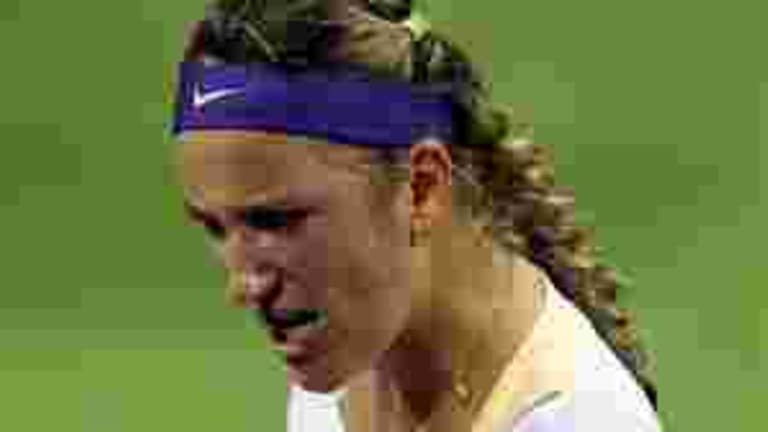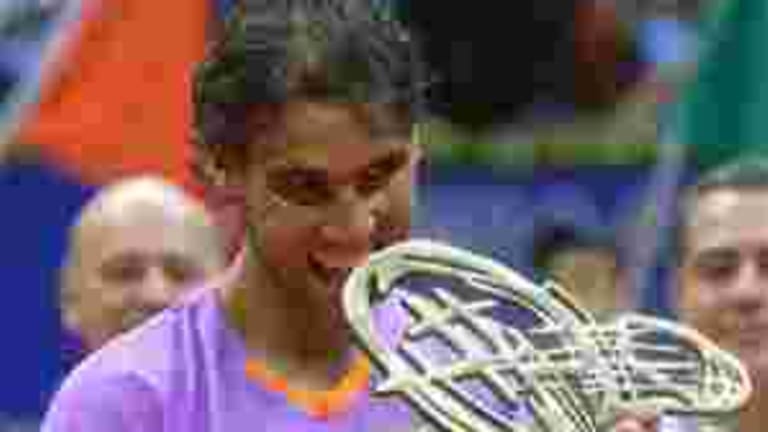She’s So Sensitive
We’re living in interesting WTA times, aren’t we? Yesterday in Doha, the day before Serena Williams ended Victoria Azarenka's 12-and-a-half month run at No. 1, Vika beat Serena for the first time since 2009.
It made for a bittersweet ending to Serena’s historic week. After her quarterfinal win over Petra Kvitova on Friday, Williams had laughed, through her tears, and said, “I’m so sensitive these days.” Many of us were surprised by the joy Serena showed when she became the oldest woman to be ranked No. 1; she had always maintained that she didn't care what the computer thought of her. On Friday, though, she said that she had adopted that attitude in part because the top spot had felt so far away for so long. Either way, it was nice to see Serena revel in one more well-deserved career achievement.
But I was also surprised to see how sensitive Williams was in her final against Azarenka. The key moments of the match came at the end of the first-set tiebreaker. Earlier in the set, Serena had complained to chair umpire Eva Asderaki that Azarenka was messing with her rhythm by holding her hand up as Serena was getting set to serve (this is something that Azarenka does against other players as well). Asderaki said, “I’m keeping my eye on it.”
But with Serena set to serve at 3-5 in the tiebreaker, Vika did it again. It annoyed Serena, who cracked a big serve and won the next three points to go up 6-5. It looked like she was about to make another of her customary clutch comebacks. Except that this time, at 6-5, with the set on her racquet, Serena got tight. She missed a first serve badly, then jumped anxiously and put a very makable forehand pass in the net. Instead, it was Azarenka, in the tiebreaker and again in the third set, who played her best, most aggressive tennis when she needed it. Afterward, Vika said she wasn’t intimidated by the opponent or the moment, and it showed.
Does this match signify a turning of the tide between these two? It’s too early to say that, and it could turn right back if they meet in the Dubai final this coming weekend. But the match does mark the second time in 2013 that Serena has looked vulnerable psychologically. In Australia, she lost to Sloane Stephens in part because she injured her ankle. But even before that happened, she had begun to play nervously, and she couldn't raise her game in the third set. The same was true against Azarenka yesterday. What was most surprising to me was that, when Vika served for the match at 5-3 and went up 30-0, I had no expectation that Serena would stage a comeback.
Serena may still have been hurting; she didn’t get as much on her serve as she usually does, and she made 48 unforced errors on the day. The loss may mean nothing in the long run. But this time, for the first time, as the deciding set progressed, it was Vika, rather than Serena, who I expected to come through in the clutch.
Interesting times, indeed.

